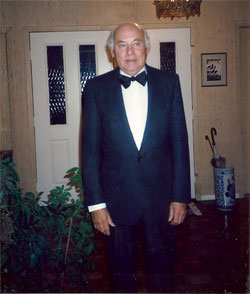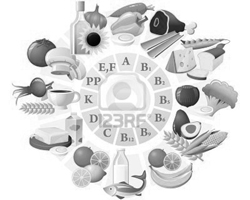On March 30, 2012, the U.S. Senate declared April Parkinson’s Disease Awareness Month. According to the Parkinson’s Disease Foundation website, as many as one million individuals in the U.S. live with Parkinson’s disease.
While approximately four percent of people with the disease are diagnosed before the age of 50, incidence increases with age. It is a chronic, degenerative neurological disorder that affects one in 100 people over age 60. While the average age at onset is 60, people have been diagnosed as young as 18.
For Kathy Maloney, the Director of Health Services, this disease hits close to home, as her father battled the disease and ultimately passed away from. She mentions that while there is currently no cure for the disease, there is treatment.
One of the key developments is the deep brain stimulation surgery in which a neurosurgeon implants electrodes into the brain. These electrodes are connected to an implantable device that is placed under the skin on the chest. The device, an electronic stimulator, sends electrical impulses to the brain to help ease the symptoms of tremor. The procedure can be done on one side or both sides of the brain depending upon which side(s) of the body is most affected. This is a treatment, not a cure.
Maloney states that the disease is the second most common neurogenerative disease affecting older adults.
According to the Mayo Clinic, the symptoms of the disease can vary from person to person. Early signs may be subtle and can go unnoticed. Symptoms typically begin on one side of the body and usually remain worse on that side even after symptoms begin to affect both sides. The signs and symptoms may include tremor, the characteristic shaking associated with the disease often begins in the hands. Symptoms such as loss of automatic movements like blinking, smiling and swinging your arms when you walk are all unconscious acts that are a normal part of being human. This tends to be diminished and even lost in people suffering from Parkinson’s. This may make even the simplest tasks difficult and timeconsuming. When you walk, your steps may become short and shuffling, or your feet may freeze to the floor, making it hard to take the first step.
Others may no longer gesture or seem animated when they speak and lastly, their speech changes. For example, you may speak more softly, rapidly or in a monotone, sometimes slurring or repeating words, or hesitating before speaking.
My grandfather was diagnosed with this disease in the early 90’s. My family and I were committed to learning everything we could about the disease and what we could do to help. At the beginning my grandfather would have tremors in his hands, but as time progressed, his symptoms became worse.
Towards the end of his battle with the disease, became more difficult to execute, like brushing your teeth or washing your face.
I was in high school when he was ill and unlike other teenagers spending time at the mall, I was at Princeton Hospital along with my family spending as much time as we could with him, tending to his every need. I didn’t have to do any of this, I simply wanted to.
Finding words to express exactly how important the disease is to me, is perhaps just as hard as finding a way to convey just how much my grandfather means to me. Even though my grandfather passed away in 1998, it might seem like such a long time ago to some, but to me as cliché as it sounds, it feels like yesterday. When a loved one passes, that wound never heals and it doesn’t get easier, it becomes harder. Every accomplishment and milestone surpassed is followed by the thought of “I really wish I could share this with him.” And perhaps the worst part of it all was not having him there on my wedding day. As my thoughts transfer to words on paper, that wound that on some days seems to have healed becomes fresh again. It seems so final, so definite.
While in and out of the hospital, my grandfather was a favorite of all the nurses and considered the perfect patient, never once wincing at the site of a needle or murmuring any words of complaint. As each season came and went, my grandfathers optimism never waivered. As his gravestone so undeniably states, he truly was “A Man For All Seasons.”
Turning your grief into a positive experience can be fulfilling and cathartic at the same time. Making a difference by volunteering with an associated organization can make you feel as if in your own special way, you are keeping that person’s memory alive.
The Michael J. Fox Foundation is a great supportive group that helps to fund research. Also, fashion designer Tory Burch believes in supporting the foundation with her “Shop for a Cause campaign. Select items are featured and 20 percent of your order goes directly to the Michael J. Fox Foundation for the month of April. Learn more at toryburch. com.
The Parkinson’s Disease Foundation’s website has information on ways you can become involved with this incredible organization. For example, every year in Central Park, The Parkinson’s Unity Walk (PUW) is held for those who are either directly or indirectly affected by the disease. This year, the walk will be held, rain or shine on April 28. PUW is a grassroots organization that hosts the Parkinson’s community for a one-mile walk which increases awareness and raises funds for PD research. Participants can join in New York City or view the video highlights online.
The walk is a 1.4 mile walk, a program with speeches from the Walk’s sponsors and representatives from the seven major U.S. Parkinson’s disease foundations and information booths and 100 percent of donations go directly to Parkinson’s disease research.
I approach one step closer to graduation this May, I can’t help but find it ironic that each graduate receives five tickets for the ceremony. Four of mine will be used, leaving me with one extra. That extra ticket should have been my grandfather’s.
It will be to look back at my family and not see his face with a smile from ear to ear watching his only granddaughter graduate, I can’t help but fight back tears thinking of what could have been.
PHOTO COURTESY of Sloane Coran




